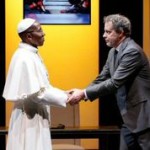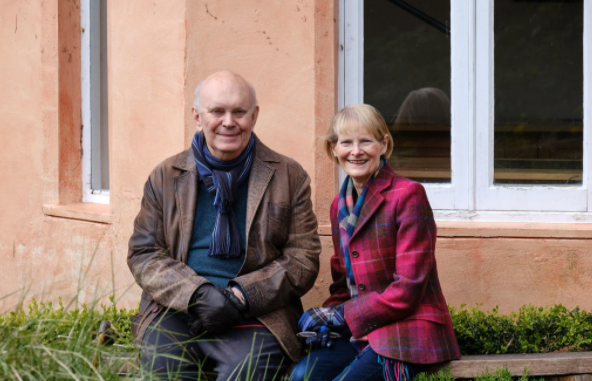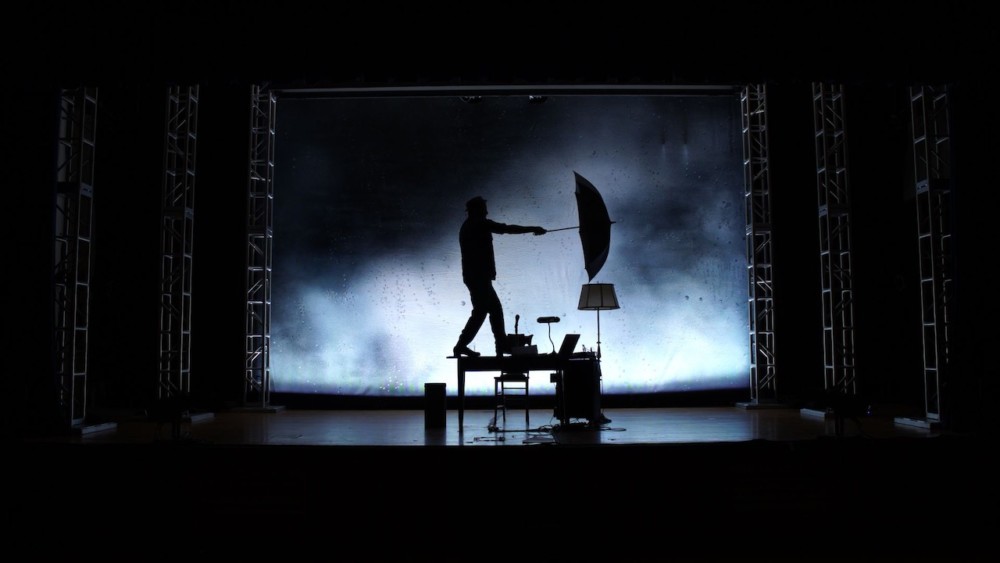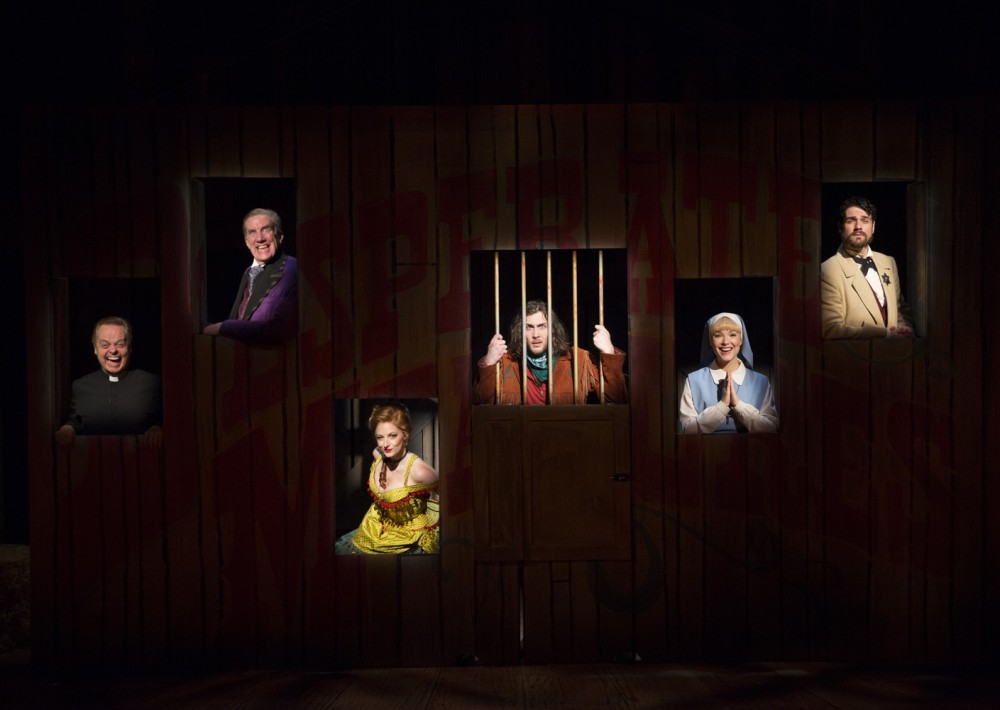By: Samuel L. Leiter
Tom Dulack’s The Road to Damascus, produced by the Directors Company, is a smart and sassy political melodrama, salted with just enough satire to let you decide just how seriously to take it. Set in “the not so distant future,” it’s got a “what if” plot that’s close enough to contemporary events to help you swallow its improbable tale of what might be waiting not so far down the line. Strindberg, of course, wrote an unrelated but similarly titled trilogy (a.k.a. To Damascus); the plays do, in fact, share the metaphoric meaning of “the road to Damascus”—a major change in a person’s thinking or beliefs, as in the Conversion of St. Paul.
Islamist terrorists have carried out bombing attacks in Miami and New York (St. Patrick’s was damaged by a suicide bomber). We hear the news from Nadia Kirilenko (Larisa Polonsky), a beautiful TV journalist working for the fictional PanArabya Television Network. She’s the lover of Dexter Hobhouse (Rufus Collins), a thrice-married, middle-aged, State Department diplomat. America’s first third-party president is in office, and the new pope, Augustine (Mel Johnson, Jr.), is the first black African to hold the position; a Jesuit, he’s also a scholar of Islam. The ambitious Nadia is an apostate Muslim, a Chechen orphan who learned English (spoken, implausibly, in a faultless, upper-class British accent) from Belgian nuns in the Crimea. Because of her earlier reporting in Africa, Augustine respects her as a friend and news professional. Dexter, for his part, is the old college buddy of Roberto Guzman (Joris Stuyck), a Curia bishop who’s the pope’s confessor.
The evidence that Damascus ordered the attacks isn’t foolproof (the culprits may instead be the Emirates), but the NSA, convinced that a post-Assad terrorist organization is responsible, wants to annihilate Syria, “once and for all.” Guzman, speaking for the Vatican, asks Hobhouse to try and delay America’s plan. The NSA, which seems to be calling the shots, and State are bitter rivals. The NSA is represented by Bree Benson (Liza Vann), a foul-mouthed, Machiavellian Secretary for Middle Eastern Affairs, who wants to know if the pope is “queer” in case she needs to blackmail him; her antagonist is the more ethically stable U.S. Under-Secretary of State Ted Bowles (Joseph Adams), who seeks to regain State’s power with the White House.
The plot takes off when Guzman tells Hobhouse that if America attacks Syria, which may lead to nuclear war, the pope will go there himself to act as “a human shield” (his “road to Damascus” decision), hoping his presence will forestall all-out war. What follows are all the permutations of diplomacy among the pope, his advisors (including Fernando Medeiros [Robert Verlaque], the Vatican Secretary of State), Nadia, Hobhouse, the NSA, and State. The pope, defending his proposal, wants to bring about a reconciliation between Christianity and Islam after 1,200 years of conflict (“Heresy!” is the response), and hopes America will defer to arbitration by the World Court, an idea typically anathema to American leaders.
It all plays out over 90 uninterrupted minutes in New York, Washington, and the Vatican, performed on Brittany Vasta’s neutral setting of gray pillars and platforms. Dulack’s dialogue—filled with political references that require attention when he shovels on the exposition—is snappy, with just enough cynical wisecracks (even the pope gets his zingers) to keep things interesting. The subject, for all its theatrical exaggerations and moments that border on the simplistic, is sufficiently grounded in a potential reality to keep you focused. Director Michael Parva has done well with his solid cast, all of whom sound as if they believe what they’re saying; my sole drawback is that Johnson’s pope, whose African accent is unconvincing, seems a bit young for the job.
It’s easy, for several reasons, to doubt the veracity of The Road to Damascus. These include the too schematically coincidental character relationships of Hobhouse, Nadia, Guzman, and Augustine, as well as the premise that a pope could act so unilaterally, regardless of his noble impulses. Still, it rivets your attention and provides something more substantial to think about than ninety percent of its competition.
*Photos: Carol Rosegg
The Road to Damascus
59 E. 59 Street, NYC
Through March 1

























